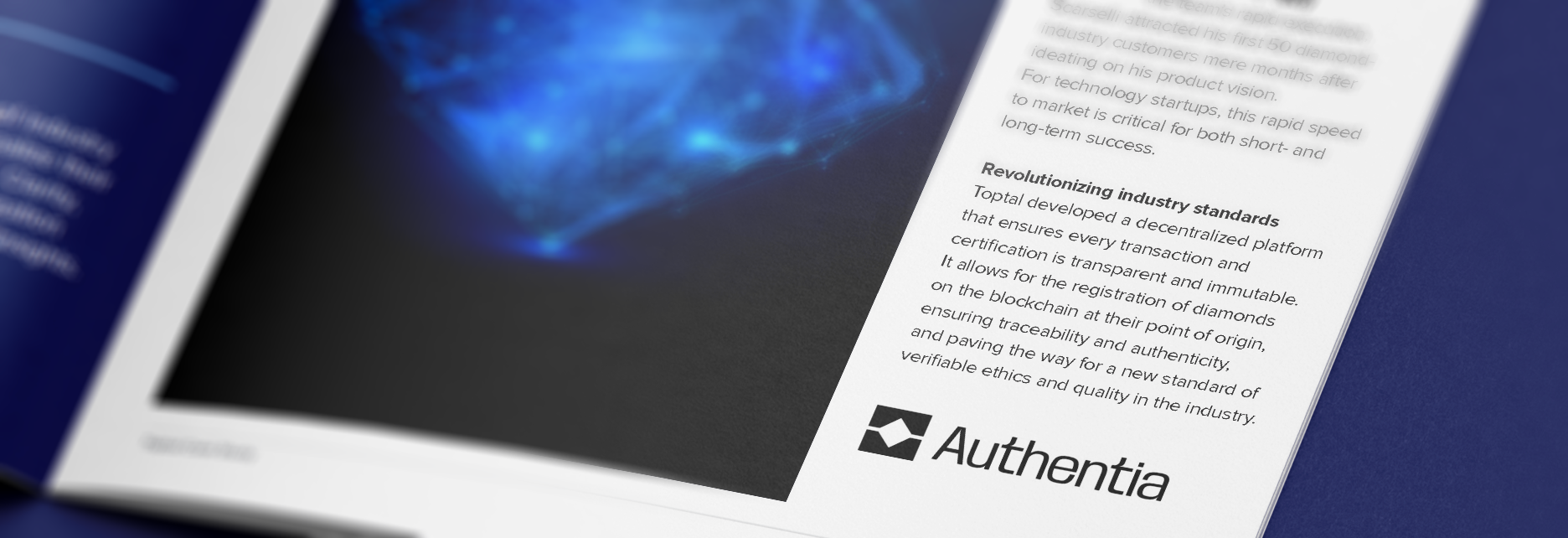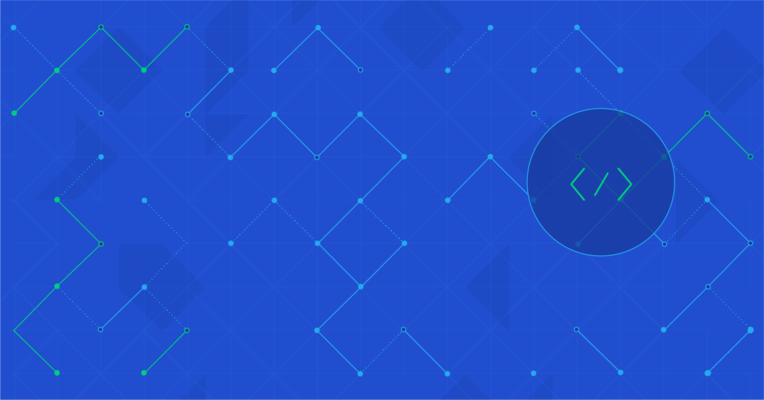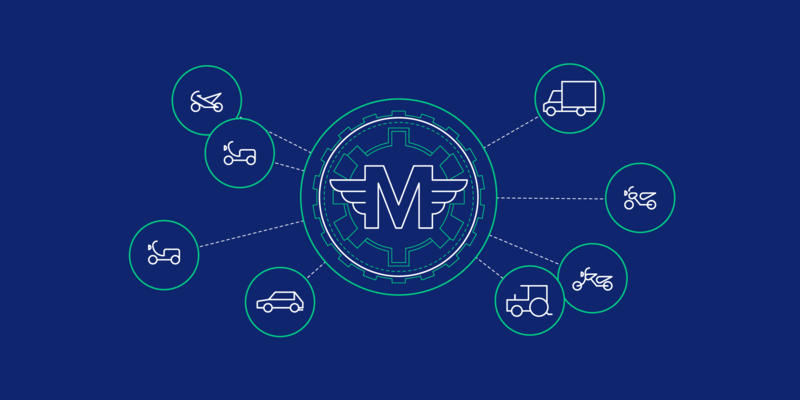Demand for Blockchain Developers Continues to Expand
Blockchain developers are among the most sought-after professionals in the tech industry. With blockchain adoption accelerating across sectors like finance, healthcare, and supply chain management, businesses face intense competition in hiring top talent.
As a recruiter, you understand that hiring an expert blockchain programmer requires more than a general understanding of blockchain technology. While they must possess deep knowledge of the field and the ability to select the right solutions for specific business needs, identifying the ideal candidate for your project demands more precise criteria.
Not everyone tasked with making the right blockchain developer hire knows what they’re getting into. Before we dive into the qualities of top developers, job description tips, and interview questions, we’ll start with a short introduction to the technology. If you’re already familiar with the basics, feel free to skip ahead to the sections on how to hire a blockchain developer.
When Did Blockchain Start?
Early trade relied on bartering, but this was inefficient. Currency streamlined transactions by enabling value exchange without intermediaries, relying on central authorities like monarchs or banks to guarantee its worth.
Blockchain technology revolutionizes this concept by eliminating the need for central authorities. Satoshi Nakamoto introduced Bitcoin, a cryptocurrency, to operate as a decentralized system based on distributed ledger technology. This ecosystem records and verifies transactions transparently, solving issues like double spending, where the same asset is fraudulently used in multiple transactions.
At the core of the concept are blocks and nodes. In proof-of-work blockchains like Bitcoin, transactions are bundled into blocks and added to the chain after cryptographic puzzles are solved. Other consensus mechanisms, such as proof of stake, use different processes to validate transactions and secure the network. These processes underpin cryptocurrencies and emerging innovations like decentralized finance (DeFi), non-fungible tokens (NFTs), and blockchain protocols that power secure, trustless systems.
What Attributes Distinguish Quality Blockchain Developers from Others?
Blockchain development is a specialized niche within software development, making it crucial to define your project requirements clearly before beginning the hiring process. This need is heightened because demand for talent significantly exceeds the supply of qualified experts, even as many web developers transition into blockchain-focused roles.
Skilled blockchain developers combine technical expertise with a deep understanding of blockchain applications. They excel in areas like blockchain-specific programming languages (e.g., Solidity, Vyper) and are adept at working with blockchain architecture, including platforms like Ethereum, Hyperledger Fabric, and Solana. These frameworks are essential for building secure, scalable, and efficient blockchain solutions tailored to various industries.
Expertise in smart contract development and decentralized applications (DApps) is also critical, as these are foundational to most blockchain projects. Strong problem-solving skills and a focus on security set exceptional developers apart. They understand cryptographic principles, consensus mechanisms, and how to prevent vulnerabilities. A robust portfolio showcasing hands-on experience with blockchain implementations is another key quality indicator.
By prioritizing these attributes, you can identify blockchain and crypto developers who are both technically proficient and aligned with your project’s needs.
Complementary Technical Skills for Blockchain Developers
Many skills and technologies from the broader realms of software engineering and app development are transferable to the blockchain, so when you set out to hire a crypto developer, it’s essential to weigh these adjacent skills appropriately when assessing candidates:
-
Programming Languages:
-
JavaScript – A cornerstone of full-stack web development, JavaScript’s versatility extends to blockchain applications, especially when using Node.js on the server. JavaScript is the most popular programming language for adding interactivity to web applications, making it a must-have skill for most blockchain developers.
-
Python – The simplicity and extensive libraries of Python make it a great language for prototyping blockchain projects quickly. It’s often used in the development of cryptographic processes and to manipulate data.
-
Java – Due to its strong type-checking system and object-oriented approach, Java is prized in blockchain development for building secure and reliable smart contracts and DApps, particularly within enterprise environments.
-
PHP – Though not commonly associated with blockchain, PHP’s server-side scripting capabilities can be utilized to build interfaces and tools that interact with blockchain systems as effectively as the languages above.
-
Solidity – As the leading programming language for Ethereum smart contract development, Solidity is designed explicitly to craft self-executing contractual states that are immutable and stored on the blockchain.
-
Libraries and Frameworks:
-
Front end – React.js is a vital library for building dynamic and interactive user interfaces on the web. Developers can create and manage DApps that interact with blockchain technologies using tools such as web3.js, a collection of libraries enabling Ethereum smart contract integration.
-
Back end – On the server side, Express.js is a popular Node-based framework building APIs capable of interacting with blockchain networks. Similarly, Python-based back ends benefit from Django’s high-level abstractions, which expedite the development process and support secure, maintainable code, essential in blockchain’s trust-critical systems.
-
Mobile Development – Skilled blockchain developers often extend their expertise to iOS and Android platforms, ensuring seamless integration of blockchain-powered features (such as a blockchain wallet) into mobile applications. With more users accessing blockchain technology through mobile devices, proficiency in Swift (iOS) or Kotlin/Java (Android) is increasingly valuable.
-
Emerging Technologies: Blockchain and machine learning often intersect, particularly in applications requiring predictive analytics, fraud detection, or decentralized AI solutions. Developers skilled in both fields can create innovative systems that leverage machine learning models for enhanced decision-making and automation. This combination is increasingly in demand for advanced applications across industries such as finance and healthcare.
How Can You Identify the Ideal Blockchain Developer for You?
To find blockchain developer talent that truly matches your needs, start by clearly defining your project’s requirements. Consider whether you need someone to build a new cryptocurrency, custom blockchain, develop smart contracts, or create decentralized applications (DApps). The scope of your project will determine the skills and experience level required.
Hiring a junior or mid-level developer with solid technical skills may suffice for smaller projects or tasks like smart contract development. However, complex initiatives such as creating a new blockchain network or ensuring interoperability across systems demand senior developers with extensive experience and strategic insight.
Strong project management skills are also valuable, especially for large-scale blockchain implementations. Developers familiar with Agile methodologies who can effectively coordinate tasks, manage timelines, and collaborate with other team members or stakeholders will help ensure the success of your project.
When deciding whether to hire full-time or freelance blockchain developers, evaluate the complexity and timeline of your project. Freelance developers are often a flexible option for smaller projects or short-term tasks, while full-time developers are ideal for ongoing or large-scale blockchain app development. Regardless of the hiring model, focus on skillset, years of experience, and expertise with digital currencies or full-stack development to ensure a strong match.
Experienced blockchain developers may come with higher hourly rates or project-based pricing, but their ability to deliver high-quality development services often offsets the cost. These blockchain experts bring specialized knowledge that can streamline your project, reduce errors, and ensure long-term success.
When evaluating candidates, focus on their professional portfolio or GitHub profile. Look for prior experience with relevant blockchain platforms (e.g., Ethereum, Hyperledger) and ensure they understand your industry’s unique challenges and opportunities. Additionally, their ability to collaborate effectively with your team can be a factor in achieving project success.
Common Blockchain Developer Roles
The blockchain ecosystem includes several specialized roles, each catering to specific project requirements. Understanding these roles can help you identify the right expertise for your needs:
-
Blockchain Engineers: Blockchain engineers design and implement new blockchain networks. They require a strong foundation in computer science, network development, and programming. Experienced engineers often work on projects for startups or enterprises, navigating the unique challenges of scaling blockchain solutions from concept to implementation. These roles often involve collaborating with a development team to address the complexities of blockchain architecture and ensure seamless integration with existing systems. Their ability to customize blockchain protocols or consensus algorithms makes them invaluable for innovative projects requiring tailored solutions. Given the complexity of such projects, hiring a dedicated team is often the most efficient approach.
-
Smart Contract Developers: Smart contract developers focus on writing secure, efficient, and modular contracts for platforms like Ethereum or Hyperledger. They understand the intricacies of public and private blockchain networks and can address issues such as immutability and dynamic connections between contracts. Their work is critical to preventing vulnerabilities that could lead to financial loss.
-
DApp Developers: DApp developers create user interfaces that interact seamlessly with blockchain systems. They manage the integration of on-chain and off-chain data, ensuring the DApp reflects real-time blockchain states. Skilled developers optimize the user experience by handling transaction delays and maintaining smooth app functionality.
-
White-paper Authors: White-paper authors combine technical and business expertise to present blockchain projects in a way that appeals to both technical audiences and potential investors. They play a vital role in explaining a project’s value and functionality, which is crucial for successful ICOs or stakeholder buy-in.
-
Initial Coin Offering (ICO) Consultants: ICO consultants manage tasks like smart contract deployment, site setup, and token issuance. Unlike blockchain engineers, they focus on launching public-facing cryptocurrency projects efficiently, often using existing blockchain platforms to minimize development complexity.
How to Write a Blockchain Developer Job Description for Your Project
A well-crafted job description is critical for attracting top blockchain developers. Clearly outline your project’s goals and the specific skills required. This ensures you attract candidates whose expertise aligns with your needs.
Start by defining the role—whether you need a developer to create a new blockchain or cryptocurrency, implement smart contracts, or build decentralized applications (DApps). Specify the required technical skills, such as proficiency in Solidity, Ethereum, or Hyperledger, and mention any experience with security or integrating the technology into existing systems.
Highlight your company’s mission and the value of the project to provide context and entice candidates who share your vision. Include details about your team, work environment (e.g., remote or on-site), and any tools or technologies they will use. Additionally, outline your onboarding process to ensure new hires can quickly adapt to your workflows, tools, and project requirements. Finally, list expectations around timelines, deliverables, and opportunities for collaboration to help candidates envision their role in your project’s success.
What Are the Most Important Blockchain Developer Interview Questions?
Interviewing candidates requires assessing their technical expertise, problem-solving abilities, and understanding of blockchain protocols. To successfully hire a cryptocurrency developer, focus on each candidate’s experience with distributed ledger technology, cryptocurrency systems, and emerging innovations like DeFi and NFTs. Tailored questions can help uncover whether candidates have the skills to meet your project’s unique needs.
What is a blockchain?
A blockchain is a distributed data structure consisting of a growing list of records—although it can also be represented as a tree—where every node is connected with another by cryptography.
The core concept is a block. In its basic form, a block contains three things:
- A timestamp, which represents the creation of a block
- A “hash” (a fixed-size digest where, for a slight change of input, the output is changed significantly) of the previous block
- The actual block data
Block data contains all transactions not yet included in other mined blocks. Before transactions can be accepted in a block, a miner has to be able to verify them. This verification process ensures that all transactions do not break any conditions or rules of the network. In most cases, there is an upper limit to the amount of data that can be included in a single block, meaning that each block has a maximum size. For Bitcoin, for example, this limit is 1MB.
Once a block has been added, it cannot be changed without altering the data within it and recalculating the hashes for all following blocks, which isn’t feasible.
What is blockchain mining?
Mining is adding new blocks to the blockchain in proof-of-work systems. To add a new block, a miner node needs to perform an exhaustive computational operation—one that’s easy to verify.
For example, the miner node needs to calculate the SHA256 hash of the concatenation of some magic number—which needs to be found by the miner—with the block’s header such that the hash ends up with a specific number of zeros. (This number of zeros is called the proof’s difficulty.)
What is the difference between permissionless and permissioned blockchains?
In a permissionless blockchain, everyone can join and become a part of the consensus process. Any popular public blockchain can be seen as permissionless.
In a permissioned one, there is an additional authorization layer, which controls which nodes have access to which part of the blockchain (e.g., a fixed group of nodes could be the only ones allowed to create new blocks).
Some solutions can be seen as hybrid approaches. For example, J.P. Morgan’s Quorum is a fork of Ethereum, where part of the network is private, and the rest is public.
What is the genesis block?
The genesis block is the first block of any blockchain. It is the only block not containing a hash referring to a previous block. In many practical solutions, this block is itself hardcoded in software.
What is consensus in distributed systems?
This kind of consensus is the agreement among a distributed system’s nodes about its state. It is a complex computer science problem without a general solution, having been solved only for specific use cases, like Bitcoin.
What is cryptocurrency?
A cryptocurrency is a digital asset that could be used as a replacement for existing fiat currencies. One of the goals of cryptocurrency technology is to eliminate the requirement of having a central authority that approves transactions.
What are the most well-known blockchain and cryptocurrency implementations?
The first widespread cryptocurrency implementation was Bitcoin, created by Nakamoto and launched in January 2009. Since then, many different applications have received publicity.
Ethereum provided a solution to run smart contracts and launched in July 2015. This brought the concept of DApps (aka decentralized apps) into the mainstream, and digital tokens were distributed to many people.
In the last two years, many companies like Intel, IBM, and J.P. Morgan have started (or supported) working on private networks. These networks can be run by any organization and used to implement particular business requirements (like an internal ledger of operations inside the company).
Their support led to blockchain-based solutions like Hyperledger, R3 Corda, and Quorum, an enterprise-focused version of Ethereum started by J.P. Morgan. These solutions can handle many use cases that public networks cannot support. For example, they have much better transaction throughput, additional security layers, and specific consensus algorithms.
What is proof of work?
The proof-of-work system requires the sender of a message (or the creator of a kind of transaction) to perform work to sign the operation, a very time-consuming process. They need to bear the cost in an economic sense. However, the verification process for this work is easy and fast, so everyone can do it quickly.
This approach was first used in the hashcash algorithm—later to be used as Bitcoin’s core mining function—to eliminate spammers. To send an email, the sender first must calculate the SHA1 hash from specific input data to contain a particular number of zeros.
The difficulty level was established such that a modern computer took about one second to complete the hash. Still, for spammers, who need to send thousands of messages at once, it would carry a very high economic cost, making spamming unprofitable.
This approach is used in Bitcoin for similar reasons. One main difference is in the target time for resolving the puzzle. When you mine a bitcoin, it needs to consume enough resources to guarantee that a new block will not be created too fast—it could cause many orphan blocks, and more blocks have to be mined to confirm the transaction.
Why do we need to use public-key cryptography?
We use cryptography to verify the sender/creator of a specific transaction. Without encryption, every operation could be easily reassigned, and then the network could be corrupted.
A transaction is signed using the sender’s private key and contains the derived Bitcoin address of the receiver. The public key, mathematically linked to the private key, verifies the signature and ensures transaction authenticity.
What is a smart contract?
Smart contracts were created as a digital replacement for paper contracts (i.e., arrangements between two or more parties) where the execution of terms can be realized without any third-party go-between.
The most popular implementation of smart contracts can be found in Ethereum. In the context of Ethereum, a smart contract is a simple computer program existing at a specific address that is executed whenever a transaction is sent to that address. The code has to be run on every node of the network: All nodes need to reach consensus about the state of the blockchain.
Thus, every program must return the same result given the same input data and state.
Where to Hire Cryptocurrency Developers
If you’re wondering where to hire cryptocurrency developers or how to secure top-tier talent, the right approach depends on your project’s size, scope, and budget. Blockchain development teams can be built in many different ways, including in-house hiring, outsourcing, or via on-demand, vetted talent platforms.
In-house Hiring
Larger companies typically hire at least a small number of full-time, in-house developers to build or maintain their core technology stack. Hiring is typically accomplished through technology recruiters or by placing job ads on sites like Indeed, Glassdoor, or LinkedIn.
Outsourcing
With outsourcing, a firm hires external individuals or companies—sometimes located in different countries—to handle blockchain development tasks. This approach allows businesses to access specialized skills, reduce costs, and speed up project delivery by leveraging global talent and resources. Typically, the client and the outsourced developer establish a clear agreement outlining project expectations and timelines before work begins.
Sourcing blockchain developers through a vetted, on-demand developer platform is a good option for startups, SMBs, and enterprise-level companies. In this model, the marketplace verifies the skill set of each local or offshore developer through testing and interviews. Some platforms also offer:
- Matching services in which a talent specialist matches companies looking to hire blockchain programmers with candidates who have the preferred experience, communication skills, and industry specialization
- Full-time dedicated developers for your project, as well as part-time or hourly developers who may be working on multiple projects
- The ability to hire remote blockchain developers, offshore blockchain developers, blockchain development teams, or individual blockchain consultants who will be managed by your in-house CTO or product owner
How Much Does It Cost to Hire a Blockchain Developer?
We’ve compiled information on the average salaries of blockchain developers from several countries via Glassdoor, and have reported them below in US dollars. Please note that actual pricing can vary greatly, with experienced blockchain developers able to demand higher pay.
Country | Median total salary per year, USD |
United States | $134,000 |
Canada | $64,100 |
Mexico | $44,000 |
Brazil | $17,300 |
United Kingdom | $80,300 |
Germany | $91,700 |
China | $20,900 |
India | $10,000 |
Australia | $85,000 |
Source: Glassdoor, July 2025
These numbers represent the median incomes as reported by Glassdoor’s proprietary Total Pay Estimate model based on salaries collected from the platform users. Wages in many areas consist of a base salary and additional pay, which may include cash bonuses, commissions, tips, and profit sharing. Glassdoor information and the currency exchange rates were accurate as of July 2025.
Why Do Companies Hire Blockchain Developers?
Companies hire dedicated blockchain developers to implement innovative solutions that drive efficiency, transparency, and security. Whether developing secure cryptocurrency systems, creating DeFi platforms, or building NFT marketplaces, blockchain developers help businesses harness the power of distributed ledger technology to stay competitive.
To ensure project success, businesses often aim to hire crypto developers with the expertise needed to deliver high-quality outcomes. The best blockchain developers bring extensive knowledge of blockchain protocols, smart contracts, and decentralized applications, enabling them to tailor solutions to unique business needs. By hiring these experts, companies can streamline operations, reduce reliance on intermediaries, and unlock new opportunities in the digital economy.





























